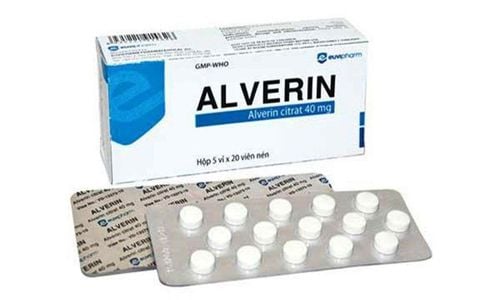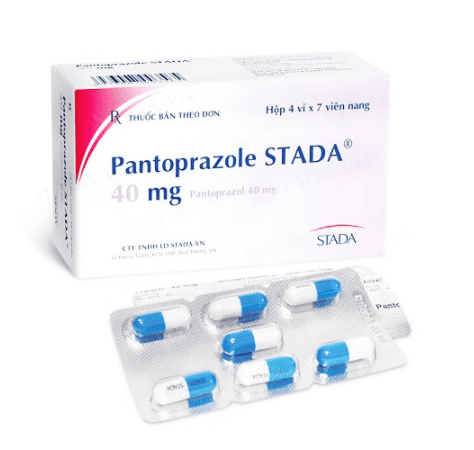This is an automatically translated article.
The article was professionally consulted by Specialist Doctor I Bui Thi Ha - Pediatrician - Neonatologist - Department of Pediatrics - Neonatology - Vinmec Ha Long International General Hospital.Parents often wonder why so many children have raindrops and if it is a symptom of a medical condition. In fact, children spitting rain or children spitting up are normal manifestations of young children, especially in children who are getting used to solid foods. There are some simple measures parents can take to reduce the frequency of children spitting during and after eating.
1. Why do children spit up saliva?
Baby spitting up, popularly known as children spitting rain, usually occurs at the time when weaning begins. This happens often in almost all young children. 4 months old is the most common period of this habit.When a child swallows air with food or milk, his stomach is filled with both air and digestive juices. When excess gas passes out or when the baby burps, digestive juices including food also go up and out through the nose or mouth.
Newborns with high needs are nourished depending on the size and weight of each child. Some children show a real interest in eating, so they are often overfed.
Newborn's digestive system is often not fully developed. The esophageal sphincter plays a role in controlling food and preventing food and digestive juices from backing up into the esophagus. The esophageal sphincter in babies is still developing and not really working properly. This is also the reason why babies are prone to vomiting or regurgitation, and parents often have to wash clothes soiled with food for them.
2. Measures to prevent children from spitting

Keeping the baby upright when feeding: Feeding an infant in a sloppy position such as in a car does not help. Milk or food goes straight to the stomach, making it easier for them to back up. Therefore, it is necessary for children to sit upright when eating, food will be contained in the stomach more easily. Focused feeding: Limit noise and other distractions. Note that the baby should not be too hungry before starting to feed. If the child is not focused or calm, he is at risk of swallowing more air with food and milk. Check the nipple: If your baby is formula-fed or breastfed from a bottle, make sure the nipple hole isn't too small to prevent the baby from exerting too much force and swallowing too much air during feedings. jar. On the other hand, if the hole is too large, the baby will almost swallow the food without making the sucking motion. Parents should read the instructions carefully when choosing a pacifier for their baby. Pat your baby on the back often: If your baby stops spontaneously during a feeding, pat your baby on the back to help burp before continuing. This helps to release the amount of air your baby swallows before adding more food to the stomach. After the feeding is over, parents should also pat the baby on the back and assist with burping. Don't put pressure on the baby's belly: Make sure the baby's clothes and diapers are not too tight and don't put the baby's belly on the parent's shoulder while holding it after eating. Children should not be allowed to sit in a car right after a meal because the reclining position with a dedicated infant car seat can increase pressure on the child's abdomen. Limit activity after meals: Do not pat or pet your baby too much after a meal and try to keep your baby upright for at least half an hour after eating. Don't overfeed: If your baby spits up a lot after each feeding, this could be a warning sign that your baby is being fed too much. Parents should try giving their baby solid foods or less milk for a few days and observe the baby's reaction. Children may be willing to be fed less at each meal, but often want to eat more often if the amount of food is not meeting their needs. Controlling formula: ask your doctor if you suspect an intolerance to the protein contained in formula or to the soy protein that causes your baby to spit.
Trắc nghiệm: Thế nào là trẻ sơ sinh đủ tháng?
Đặc điểm bên ngoài của trẻ sơ sinh đủ tháng được thể hiện qua các tiêu chuẩn như: Cân nặng, chiều dài và hình thể. Theo dõi bài trắc nghiệm dưới đây sẽ giúp các bậc cha mẹ hiểu thế nào là trẻ sơ sinh đủ tháng, qua đó có thể đánh giá tổng trạng sức khỏe và sự phát triển của bé yêu nhà mình.The following content is prepared under supervision of Thạc sĩ, Bác sĩ y khoa, Ma Văn Thấm , Nhi , Phòng khám Đa khoa Quốc tế Vinmec Dương Đông(Phú Quốc)
3. When will the baby stop spitting?
As their muscles develop and become stronger, they can hold food in their stomachs. Most babies will stop spraying by the time they are 6 to 7 months old, or when they sit upright on their own. A small number of cases can last up to the one-year-old birthday.4. How to distinguish when the child vomits?

5. Is a child spraying rain a sign of a serious health problem?
Raindrops are a normal part of a child's growth and maturation, but if the child is not gaining weight steadily, parents need to take the child to the doctor. Children who spit so much that they are unable to gain weight normally or have difficulty breathing may be experiencing gastroesophageal reflux disease.Schedule a visit to the doctor as soon as the child has vomiting: Vomiting means vomiting that comes out quickly and forcefully, which can be expelled. This can be a sign of pyloric stenosis, in which the sphincter layer at the end of the stomach enlarges and prevents food from reaching the stomach down to the small intestine. This sign usually appears in children with pyloric stenosis when they are 1 month old.
In addition, parents should also take the child to see a doctor if blood or green bile is found in the child's vomit. This could be a sign of a small bowel obstruction. Small bowel obstruction is an emergency condition that requires emergency detection, diagnosis, and surgery to keep the child safe.

6. Is food coming out of a child's nostrils normal?
In the human body, the nostrils are connected to the back of the throat. This feature is observed in both adults and children. So when a baby spits up, sometimes food and digestive juices can come out of the nose instead of the mouth. This usually happens when the child closes his mouth or tilts his head in certain positions to help the spray experience the least amount of pressure.Besides, food can also come out of the nostrils if swallowing is interrupted when the child coughs or sneezes. This can even happen in older children. The most common scenario is when the baby is eating and starts laughing while trying to drink milk. If parents observe milk coming out of the nostrils, this is the same symptom when a baby sprays rain and food comes out of the nostrils instead of the mouth. In short, this is a normal and completely explainable sign.
To prevent young children from contracting gastrointestinal diseases, parents should pay attention to the nutrition that improves the child's resistance. At the same time, add supporting foods containing lysine, essential micro-minerals and vitamins such as zinc, chromium, selenium, B vitamins,... snacks and less digestive problems.
Parents can learn more:
Why do you need to supplement Lysine for your baby?
The role of zinc - Guidelines for reasonable zinc supplementation
Please visit the website Vinmec.com regularly and update useful information to take care of your baby and family.
Reference source: babycenter.com















